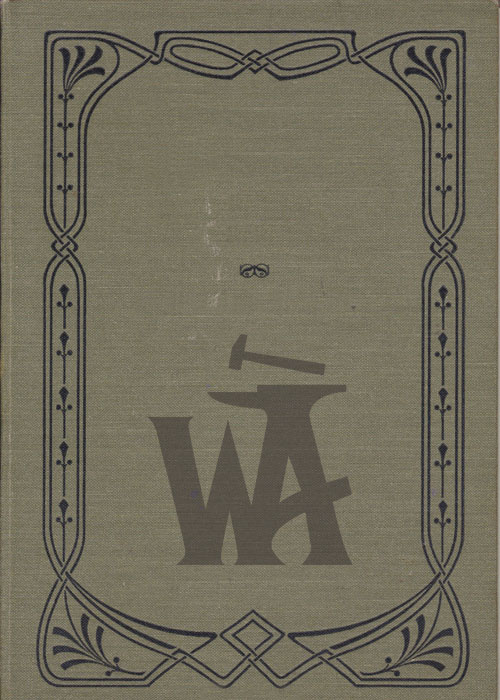The Codex Aeternum
Table of Contents
Chapter I: Of the Nature of Magic Chapter II: Of the Nine Laws of Magic Chapter III: Of the Nine Paths Chapter IV: Of the Path of Abjuration Chapter VI: Of the Path of Conjuration Chapter VII: Of the Path of Divination Chapter VIII: Of the Path of Enchantment Chapter IX: Of the Path of Evocation Chapter X: Of the Path of Illusion Chapter XI: Of the Path of Necromancy Chapter XII: Of the Path of Transmutation Chapter XIII: Of the ElementsChapter XI: Of the Path of Necromancy
Necromancy exists because mortals fear to let go. Its purpose is to preserve, to control, or to steal that which should pass beyond reach.
-
Preservation of Life: At its noblest, Necromancy extends life or heals wounds by borrowing vitality from another source.
-
Communication with the Dead: It may call to ancestors, seeking knowledge lost to time.
-
Weaponization of Death: It may weaken armies, rot crops, or raise corpses as thralls.
-
Defiance of Fate: Its darkest purpose is to prevent the soul from passing to the judgment of Draethor — to bind it in place, enslaved.
Thus, Necromancy is not only power over others, but also defiance of the eternal order. Where Abjuration preserves balance, Necromancy unbalances it deliberately.
No Path exemplifies the Laws more starkly:
-
Balance: To extend one life demands the shortening of another. The healer who draws vitality from herself may weaken to save another; the tyrant drains peasants to prolong his reign. All life borrowed must one day be repaid.
-
Conservation: Vitality cannot be created. The necromancer steals it — from earth, from beast, from man, or from the soul itself. Thus his art is not creation, but theft.
-
Limitations: No corpse is truly restored. A dead man raised is but a shell, a puppet echoing life. No enchantment of Necromancy can return the true self, for that soul has passed to judgment. To claim otherwise is lie or heresy.
-
Reflection: The necromancer bears the mark of his art. His flesh pales, his eyes sink, his voice grows hollow. More than this, his soul stains, each act of theft tying him closer to Draethor. Such practitioners often find their own judgment hastened — their souls claimed more swiftly than others at death.
Thus, the Codex declares Necromancy the most perilous of disciplines, for it places its hand not only upon the body, but upon eternity itself.
The perils of this Path are not only physical, but spiritual, reaching across planes:
-
Corruption of Soul: Every act stains the caster. What begins as a healing borrowed from another may end in gleeful slaughter to fuel one’s art.
-
Enslavement of the Dead: To bind a corpse is to desecrate it, to deny both dignity and judgment. The dead, if loosed, rise in fury against master and foe alike.
-
Rebellion of Spirits: Souls bound in crystals or vessels do not remain docile. They claw and whisper, seeking freedom. Entire lines of necromancers have perished when their enslaved souls broke their bonds.
-
Draethor’s Claim: The infernal plane is roused by Necromancy. Each act is a beacon. Fiends and Keepers of Fate may turn their eyes upon the caster, judging them before death and dragging them prematurely into torment.
Thus, while all Paths carry danger, Necromancy alone endangers not only the practitioner but all around him, for Draethor hungers ever for those who trespass upon its domain.
The necromancer is reviled, yet his art is sought in desperation.
-
In Courts: Few rulers admit to keeping them, yet many secretly covet their skills — extending life, extracting secrets from corpses, controlling enemies even after death.
-
In Academies: Necromancy is studied only to condemn it. The Celestial Academy’s rule is absolute: “The black flame is forbidden.” Yet hidden manuscripts whisper otherwise, for no scholar leaves such power wholly unexamined.
-
In War: Armies of the dead are tireless, unyielding, and loyal only to their master. Generals condemn them, but history is littered with campaigns where desperate lords turned to Necromancy rather than accept defeat.
-
In Faith: Priests are the fiercest foes of this Path. To chain souls is to deny the gods their rightful judgment. Many temples preach that the necromancer’s punishment in Draethor is swifter, harsher, and eternal.
Thus, the necromancer stands apart — condemned, feared, and hunted. Yet so long as men fear death, there will always be those who walk this Path in shadow.
"Thus is the Path of Necromancy, eighth among the Nine. It is the art of death’s theft, the binding of soul, the denial of eternity. It promises preservation but brings corruption; it offers power but demands the self. Let the necromancer remember always: what he steals is not his own, and what he binds will one day bind him. In Draethor, no lie is hidden, and the Keepers of Fate forget no debt."






